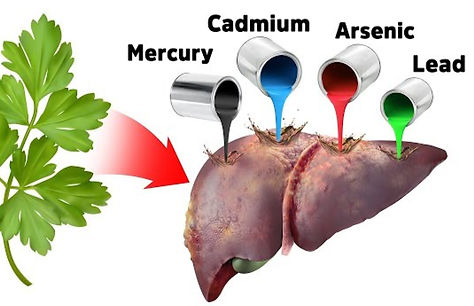Heavy Metals Assessment & Detoxification
The process of heavy metals assessment and detoxification entails testing and the subsequent attempt to lower the levels of toxic metals in one’s body including lead, mercury, cadmium, and arsenic. These metals can be found in the environment and through foods, water, or workplace exposure and are known to result in stressing the body tissues, lead to awful effects on the nerves, and alter the normal working of tissues and organs in the body.
The usual course of heavy metals includes tests performed in a laboratory, which can involve blood, urine, or hair samples to check the levels of metals. Knowledge of the heightened concentration of heavy metals is vital to counteract whatever health risks may arise. At Wellgevity Center we provide consultations on heavy metals testing and how to minimize toxic load for the body, which includes recommending specific detoxification programs and protocols and adjusting one’s lifestyle accordingly.


Faq's
-
What are the benefits of detoxification?Detoxification will leave a positive impact on energy production, digestion, mental acuity, and the immune system as it clears the body of toxins and waste products.
-
How do I know I need to detox and how often should it be done?As for the frequency of detoxification, this depends mostly on the personal objectives and conditions of a client, though the majority of clients can enjoy seasonal cleansing or short-term detoxifying courses.
-
Is it safe for everyone to do detoxification?Even though most detox programs are harmless, it is critical to pay attention to the specific health status of the patient before undertaking a detoxification method or regime as well as taking medical advice when undertaking a detox plan, particularly when the patient has any major or minor health complication.
-
What are the common symptoms of thyroid dysfunction?Common symptoms reported are fatigue, changes in weight, irritability, irregularities in heartbeats, or sensitivity to cold temperatures.
-
How is thyroid dysfunction diagnosed?Diagnosis is usually done by blood tests that measure levels of the thyroid hormones T3, T4, and TSH.
-
Is there any possibility of managing thyroid dysfunction with lifestyle modification?Yes, lifestyle-related interventions like eating a balanced diet, doing regular exercise, and managing stress can only support the overall health of the thyroid and the medical interventions in place that are currently taken by the patient.
